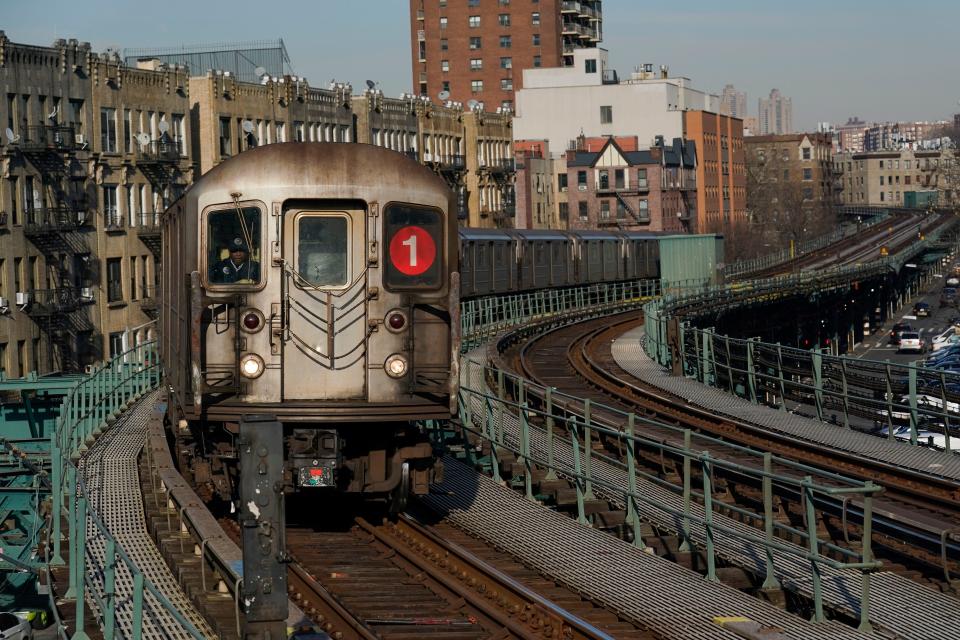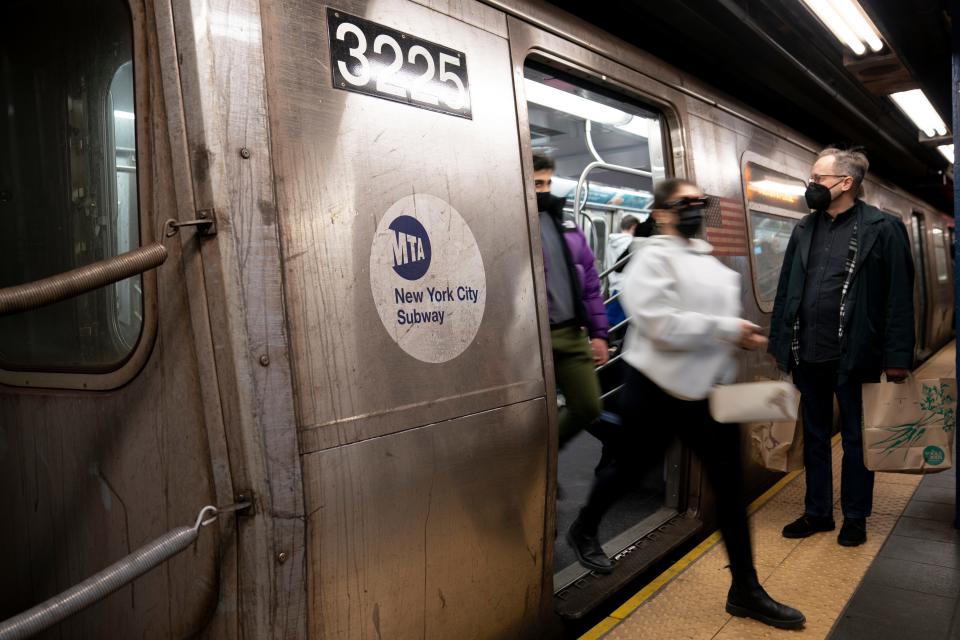Higher MTA tax? NY senators seek to protect suburban employers from Hochul's proposal
- Oops!Something went wrong.Please try again later.
- Oops!Something went wrong.Please try again later.
A group of senators is seeking to shield Hudson Valley and Long Island employers from a proposed increase in the payroll tax they pay to support the financially strapped Metropolitan Transportation Authority.
Gov. Kathy Hochul has proposed raising the tax rate for larger employers in the MTA region − New York City and the two suburban areas served by commuter trains − to generate an additional $800 million for the transit agency. She included that revenue-boosting idea in the budget plan that she introduced this month and will negotiate with leaders of the state Legislature in coming weeks.

Why lawmakers say suburbs shouldn't see an MTA tax hike
In a letter this week to Senate Majority Leader Andrea Stewart-Cousins, four senators argued that employers outside New York City should be spared the tax increase since they and their workers generally don't benefit from the subways, buses and trains that the MTA runs. Most commuters use public transit to get to jobs in New York City, not the reverse, they said.
"Furthermore, the vast majority of revenue from this proposal will be injected into New York City Transit," read the letter, signed by Democrats James Skoufis and Michelle Hinchey and Republican Rob Rolison of the Hudson Valley, and Democrat Monica Martinez of Long Island.
The senators also are seeking to eliminate the tax entirely for community colleges and hospitals, as well as county and local governments in the MTA's five Hudson Valley counties − Westchester, Rockland, Putnam, Orange and Dutchess − and on Long Island.
"Significant public funds flow to these groups and it is as anti-taxpayer as much as it is nonsensical to siphon some of those funds to an unrelated MTA tax," the letter read. "It is long past time that we address this inequity."
The state has carved out similar exemptions since creating the tax in 2009, sparing public and private schools, libraries and employers with payrolls lower than $1.25 million a year. All other employers in New York City and the suburbs pay one of three rates, depending on their payroll size.
Housing plans:How Kathy Hochul plans to speed home building in NY — and the resistance she'll face
Utility costs:How Kathy Hochul plans to cut costs for New Yorkers who can't afford heat, electricity
How much of an increase is proposed for MTA payroll tax?
Hochul has proposed raising the highest rate − for employers with annual payrolls larger than $1.75 million − to 0.50% from 0.34%, starting July 1. The lower rates for smaller businesses are unchanged at 0.11% and 0.23%.
Even at such small percentages, the tax takes an unwelcome bite. Last year, it cost Rockland County government − and its taxpayers − more than $500,000, county officials said. SUNY Orange, the community college in neighboring Orange County, paid around $116,000 in MTA payroll taxes, according to its spokesman.

The senators appealing to Stewart-Cousins say their requests would preserve much of the $800 million added MTA revenue being sought by keeping the tax increase intact in New York City, where most of the money is generated. Hospitals, for whom they want to waive the tax, paid about $103 million in MTA taxes in 2021, according to Skoufis' office.
"This plan injects hundreds of millions of new dollars into the MTA while protecting the overtaxed suburbs and correcting problems in the underlying, existing tax," the senators wrote.
The Senate and Assembly are holding hearings on Hochul's $227 billion budget proposal and will each produce their own versions in March as counter-offers. The governor and legislative leaders then must hash out agreements to present lawmakers a final spending plan for approval by around April 1.
More:NY and NJ at war over congestion pricing, but they've been fighting for years. Here's why
Chris McKenna covers government and politics for the Journal News and USA Today Network. Reach him at cmckenna@gannett.com.
This article originally appeared on New York State Team: Higher MTA tax? NY senators seek to protect employers in NYC suburbs

